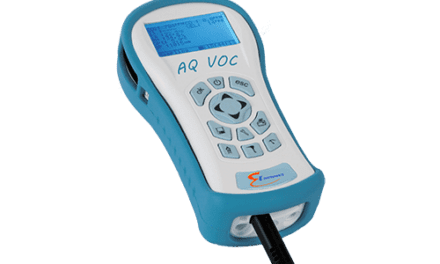I believe we can show our value to hospital administrators by making a difference in a number of ways, such as:

Education: Surgical navigation systems and robots, video endoscopy, biphasic defibs, wireless networks and WMTS, 64-slice CT, DICOM, PACS, C/R, digital radiography, medical lasers, CO2, YAG, excimer—the list of technology and equipment grows. Many of us entered this field with associate degrees that we received when analog electronics was king. Many technicians today may have 10 to 20 years of valuable hands-on experience, but have not updated their technical knowledge.
Some will remember working on bedside monitors with a “bouncing ball” and analog circuitry that needed constant adjustments. Troubleshooting a clinical environment or radiologydepartment today is much different than it was 15 years ago. Today, we need an understanding of computer networks, software applications, digital electronics, and physiology and anatomy to be a valuable resource. We must continue to upgrade our skills.
Join the clinical team:Clinical teams must look to us as a critical part of their team. Managers and supervisors must be valuable participants on committees such as medical-equipment management, safety, and product evaluation. Technicians must interact with clinical staff and managers. Do we get asked for our opinion on replacing equipment? Do we talk to staff about the overall age and condition of equipment, or how we can better meet their needs? Have we discussed their department inventory and PM schedules? Do we also talk with the clinical staff about their families, hobbies, vacations, etc? If the answer to these is no, then we are not an integral part of their team. Be proactive, not just reactive.
Promote your department:Biomedical departments need to let administrators know what we are doing for them. This could be in the form of monthly meetings discussing PM-completion rates, cost-saving measures, clinical-equipment assessments, etc. Just as important, demonstrate how we are being proactive by pointing out problems discovered through performance-improvement initiatives and the steps we are taking to prevent them. Too often, biomed departments are happy to repair equipment and return it to service without anybody in upper management knowing what we really do.
Professionalism:Do we know our medical-equipment-management plan, our department policies and procedures, or the Joint Commission on Accreditation of Healthcare Organizations standards? Do we support our local BMET associations? Are we certified? Are we professional in our actions? Do we meet deadlines, consider clinical needs, and communicate effectively? Do we remember that our actions affect patients and their families?
At Evanston Northwestern Healthcare (ENH), clinical engineering uses “MADE: Make a Difference Everyday, Everywhere.” Each member of the biomedical engineering team at ENH has committed to our MADE program by signing the following:
The ENH Bio-Medical Engineering Team is Committed to Excellence. We strive for Excellence by:
Making a Difference Everyday, Everywhere
How can we achieve this? It could be:
1) Helping a visitor find their way.
2) Providing efficient emergency service in a critical situation.
3) Providing timely feedback on the status of equipment repair.
4) Finding a less costly service solution.
5) Analyzing our PM frequency and adjusting the schedule to provide a safer clinical environment.
6) Taking the time to explain equipment function to a new nurse.
7) Asking a patient if there is anything we can do for them after completing an equipment repair in their room.
8) Making a coworker smile.
As a member of the ENH Biomedical Engineering team, I voluntarily Commit to Excellence and to Make a Difference Everyday, Everywhere.
Each of us in biomedical engineering should ask ourselves this question: Am I committed to excellence to Make a Difference Everyday, Everywhere?
| What’s on Your Mind? Got a gripe? A recommendation? Does someone or something deserve praise? Share your opinions and insights with your peers. Soapbox columns should be 650–700 words in length and can be e-mailed to [email protected] or sent on disk to Editor, 24×7, 6100 Center Dr, Suite 1020, Los Angeles, CA 90045. |
Tom Collins, CBET, is director of clinical engineering for Evanston Northwestern Healthcare, Evanston, Ill, and works for ARAMARK, Philadelphia.




